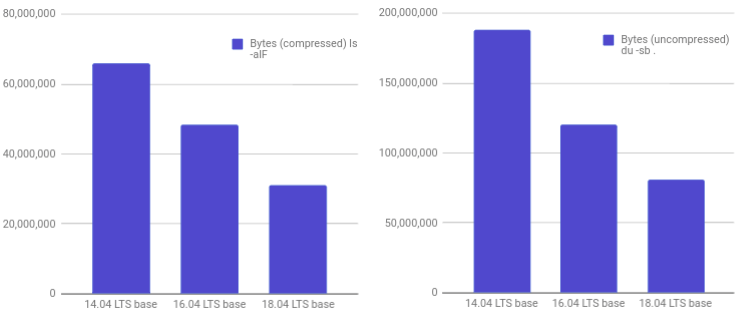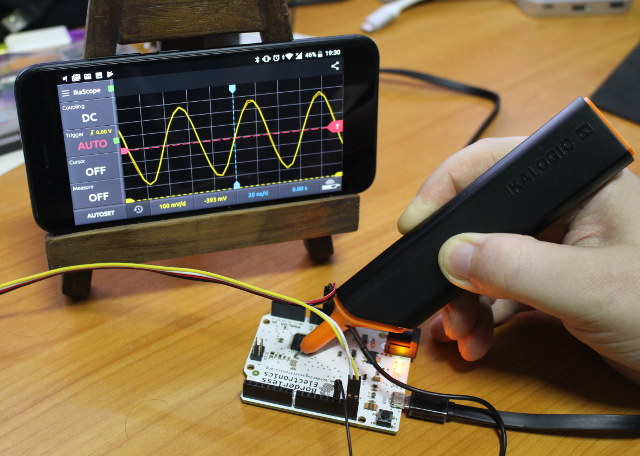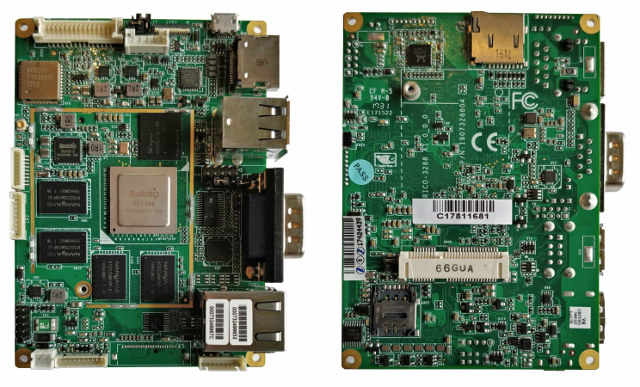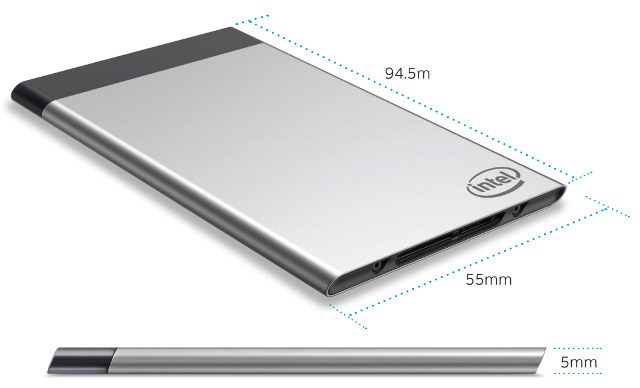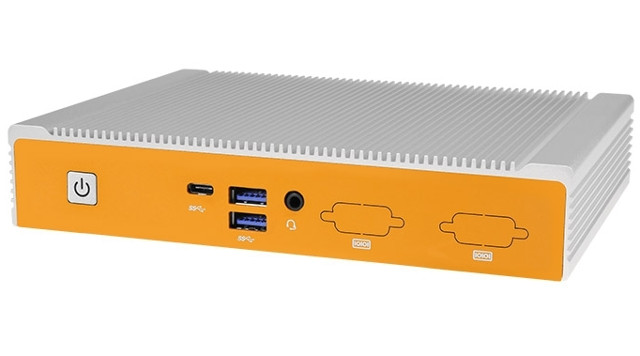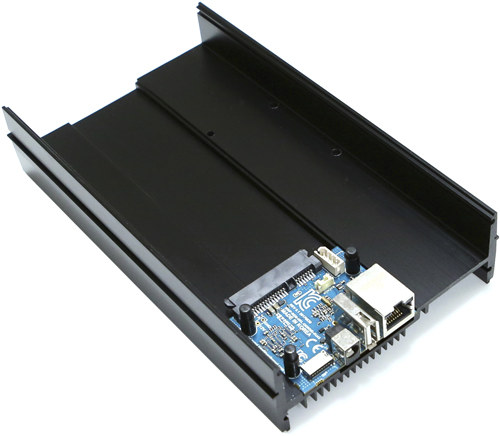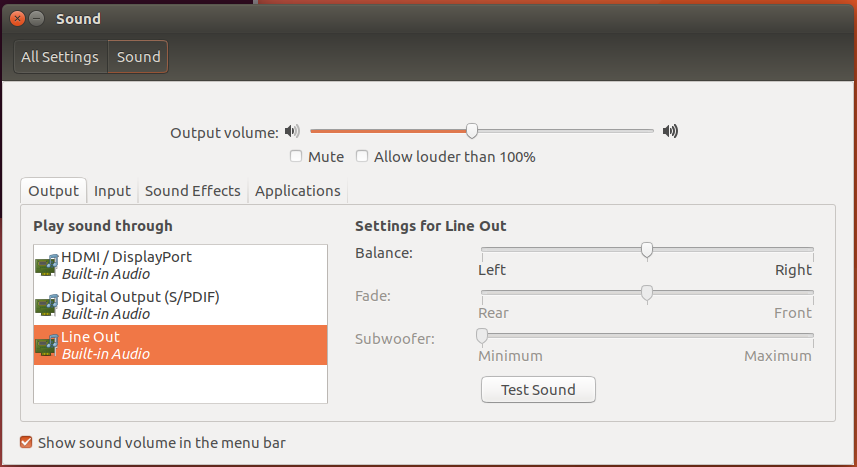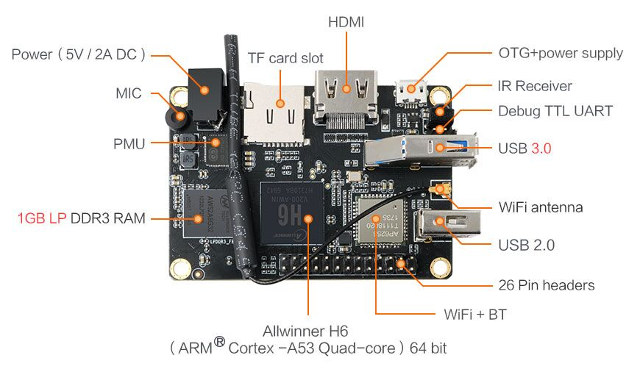Sometimes you want to get the smallest image you can get, either because your storage device has limited capacity, you may want a faster boot, oe because you can. In the past, I’ve covered minimal firmware images for Raspberry Pi using Raspbian or the Yocto Project, as well as SliTaz or more recently a minimal Ubuntu 16.04 for ODROID C2/C1+ boards. Minimal images are also popular for containers like docker or LXD. Canonical has released Ubuntu minimal images for several years, and Dustin Kirklan blogged about Ubuntu 18.04 LTS mini images a few days ago, showing the good progress made over Ubuntu 14.04 and 18.04 “Bionic Beaver”, and asking for feedback. The charts above shows the minimal image went from around 62.78 MB (compressed) and 179.67 MB (uncompressed) for Ubuntu 14.04 LTS down to 29.65 MB (compressed) and 77.5 MB (uncompressed). That’s the number of AMD64 images, but ARM64 Ubuntu […]
Getting Started with IkaScope WiFi Pen-Oscilloscope, and ScanaQuad SQ50 USB Logic Analyzer & Signal Generator
A couple of weeks ago, I received IkaScope WS200 pen-like WiFi oscilloscope, as well as ScanaQuad SQ50 USB logic analyzer & signal generator, and I’ve already checked out the hardware both both in a aforelinked unboxing post. I had also very shortly tried IkaScope with GOLE 10 mini PC, but just to showcase potential use case for a Windows 10 mini PC with an inclined touchscreen display. But at the time I did not really a proper measurement, as it was more to test the mini PC than the oscilloscope itself. I’ve now had time to test IkaScope desktop program and mobile app in respectively Ubuntu 16.04 and Android 8.0.0, as well as ScanaStudio for ScanaQuad USB device using Ubuntu 16.04 only, since there’s no mobile version of the program. While I’ll focus on Ubuntu and Android, most of the instructions will be valid for Window 10 and Mac OS X […]
Amarula Vyasa is a $150 Pico-ITX Single Board Computer Powered by Rockchip RK3288 SoC
Yesterday, as I published Linux 4.15 changelog for Arm and MIPS, I discovered a new Rockchip RK3288 platform described as “Amarula Vyasa single board computer”, so that got me interested. The full name of the company is “Amarula Electronics Limited Sony UK”, which means Vyasa is the name of the board. Amarula Vyasa relies on a 2.5″ Pico-ITX form factor, and is available in either commercial and wide temperature (WiTAS) range. The board is equipped with 2GB RAM, 16GB eMMC flash, exposes ports and connectors such as HDMI 2.0, eDP, and LVDS, and plenty of network connectivity (WiFi, Ethernet, mPCIe modem…) that would make it suitable for a connected digital signage, or other applications requiring a (touchscreen) display and redundant Internet / network connectivity. Amarula Vyasa specifications: SoC – CPU Rockchip RK3288 (ARM CortexTM -A17 Quad-core 1.6GHz) System Memory – 2GB DDR3L SDRAM Storage – 16GB eMMC flash, Micro SD […]
Intel Compute Cards Review – Windows 10 and Ubuntu 17.04 on CD1C64GK, CD1P64GK and CD1M3128MK
The Intel Compute Stick revolutionized the mini PC market through the introduction of x86 based processors making Windows available as an OS option. However, for Intel the biggest target market turned out to be business rather than consumer with digital signage being a key user. As a result Intel have responded with the introduction of the Intel Compute Card. So far they have released four versions of card: and they they differ from compute sticks by no longer being standalone mini PCs but dependent on a dock or host device. The card itself is relatively small with a footprint slightly larger than a standard credit card: and is distinguished by the back being printed with details about the card including the model: The lack of emphasis on the consumer market is also evident in the rather unobtrusive plain packaging: On the end that inserts into the dock or host device […]
Logic Supply Introduces ML350 Customizable Fanless Industrial Computer Based on Intel Apollo Lake Processor
Logic Supply has just unveiled their latest industrial grade computer with ML350 model that features an Intel Celeron or Pentium Apollo Lake processor, with up to 8GB RAM, two DisplayPorts, up to two Gigabit Ethernet ports, mPCIe and mSATA expansion slots and more. The mini PC is customizable, so when you order you can configure it match your exact requirements, for example you can select the amount of RAM (4GB or 8GB), storage up to 2TB mSATA SSDs, wireless connectivity (WiFI, Bluetooth, 4G), mounting options, and other hardware options. The company can also change the color of the front and back panels and add your own logo though their Rapid Branding program.Logic Supply ML350 (ML350G-10) specifications: SoC (one of the other) Intel Celeron N3350 dual core processor @ 1.10 / 2.40 GHz with Intel HD graphics 500 Intel Pentium N4200 quad core processor @ 1.10 / 2.50 GHz with Intel […]
ODROID-HC2 Linux NAS System for 3.5″ Hard Drives Launched for $54
We knew it was coming, and Hardkernel has now launched an updated version of the ODROID-HC1, called ODROID-HC2 based on the same Samsung Exynos 5422 board, but instead supporting 3.5″ hard drives. The device can now be purchased for $54 plus shipping, but you may also consider adding some accessories like a 12V/2A power supply, and the top cover for the enclosure. [Update: Also listed on Ameridroid now]ODROID-HC2 specifications: SoC – Samsung Exynos 5422 octa-core processor with 4x ARM Cortex-A15 @ 2.0 GHz, 4x ARM Cortex-A7 @ 1.4GHz, and Mali-T628 MP6 GPU supporting OpenGL ES 3.0 / 2.0 / 1.1 and OpenCL 1.1 Full profile System Memory – 2GB LPDDR3 RAM PoP @ 750 MHz Storage UHS-1 micro SD slot up to 128GB SATA interface via JMicron JMS578 USB 3.0 to SATA bridge chipset Case supports 2.5″ or 3.5″ drives up to 27mm thick Network Connectivity – 10/100/1000Mbps Ethernet (via […]
MINIX NEO N42C-4 Pro Review – Part 3: Ubuntu / Linux
In the second part of MINIX NEO N42C-4 review (and on linuxium website), we looked at the device and the performance using Windows. In this third part, we will look at how to install and the performance of using Linux (Ubuntu). The BIOS does not include an option to select Linux as a boot OS and a standard Ubuntu ISO written to a USB will not boot. So to install Ubuntu to the eMMC as dual-boot first it was necessary to respin a standard Ubuntu ISO using my ‘isorespin.sh’ script with the ‘–apollo’ option, and which after creating a LiveUSB using the ‘dd’ command was used to boot and install Ubuntu. First let’s remind ourselves of the hardware configuration by running some standard Linux commands:
|
1 2 3 4 5 6 7 8 9 10 11 12 13 14 15 16 17 18 19 20 21 22 23 24 25 26 27 28 29 30 31 32 33 34 35 36 37 38 39 40 41 42 43 44 45 46 47 48 49 50 51 52 53 54 55 56 57 58 59 60 61 62 63 64 65 66 67 68 69 70 71 72 73 74 75 76 77 78 79 80 81 82 83 84 85 86 87 88 89 90 91 92 93 94 95 96 97 98 99 100 101 102 103 104 105 106 107 108 109 110 111 112 113 114 115 116 117 118 119 120 121 122 123 124 125 126 127 128 129 130 131 132 133 134 135 136 137 138 139 140 141 142 143 144 145 146 147 148 149 150 151 152 153 154 155 156 157 158 159 160 161 162 163 164 165 166 167 168 169 170 171 172 173 174 175 176 177 178 179 180 181 182 183 184 185 186 187 188 189 190 191 192 193 194 195 196 |
linuxium@N42C-4:~$ lsb_release -a Distributor ID: Ubuntu Description: Ubuntu 17.04 Release: 17.04 Codename: zesty linuxium@N42C-4:~$ linuxium@N42C-4:~$ uname -a Linux N42C-4 4.10.0-19-generic #21-Ubuntu SMP Thu Apr 6 17:04:57 UTC 2017 x86_64 x86_64 x86_64 GNU/Linux linuxium@N42C-4:~$ linuxium@N42C-4:~$ inxi -Fc0 System: Host: N42C-4 Kernel: 4.10.0-19-generic x86_64 (64 bit) Desktop: N/A Distro: Ubuntu 17.04 Machine: Device: desktop Mobo: MINIX model: N42C-4 v: Default string serial: Default string UEFI: American Megatrends v: 5.12 date: 11/14/2017 CPU: Quad core Intel Pentium N4200 (-MCP-) cache: 1024 KB clock speeds: max: 2500 MHz 1: 897 MHz 2: 2394 MHz 3: 1333 MHz 4: 2319 MHz Graphics: Card: Intel Celeron N3350/Pentium N4200/Atom E3900 Series Integrated Graphics Controller Display Server: X.org 1.19.3 drivers: modesetting (unloaded: fbdev,vesa) tty size: 204x62 Advanced Data: N/A for root Audio: Card Intel Celeron N3350/Pentium N4200/Atom E3900 Series Audio Cluster driver: snd_hda_intel Sound: Advanced Linux Sound Architecture v: k4.10.0-19-generic Network: Card-1: Realtek RTL8111/8168/8411 PCI Express Gigabit Ethernet Controller driver: r8169 IF: enp1s0 state: up speed: 1000 Mbps duplex: full mac: a0:1e:0b:09:64:59 Card-2: Intel Device 24fb driver: iwlwifi IF: wlp2s0 state: down mac: 5e:8e:91:6c:84:80 Drives: HDD Total Size: NA (-) ID-1: /dev/mmcblk0 model: N/A size: 31.3GB Partition: ID-1: / size: 9.8G used: 5.8G (62%) fs: ext4 dev: /dev/mmcblk0p5 RAID: No RAID devices: /proc/mdstat, md_mod kernel module present Sensors: System Temperatures: cpu: 47.0C mobo: N/A Fan Speeds (in rpm): cpu: N/A Info: Processes: 212 Uptime: 7 min Memory: 633.4/3796.5MB Client: Shell (review-tests.sh) inxi: 2.3.8 linuxium@N42C-4:~$ linuxium@N42C-4:~$ df -h Filesystem Size Used Avail Use% Mounted on udev 1.9G 0 1.9G 0% /dev tmpfs 380M 6.3M 374M 2% /run /dev/mmcblk0p5 9.8G 5.8G 3.6G 62% / tmpfs 1.9G 12K 1.9G 1% /dev/shm tmpfs 5.0M 4.0K 5.0M 1% /run/lock tmpfs 1.9G 0 1.9G 0% /sys/fs/cgroup /dev/mmcblk0p2 96M 74M 23M 77% /boot/efi tmpfs 380M 172K 380M 1% /run/user/1000 /dev/mmcblk0p4 19G 17G 2.1G 90% /media/linuxium/309476E59476ACCA tmpfs 380M 0 380M 0% /run/user/0 linuxium@N42C-4:~$ linuxium@N42C-4:~$ lsblk -a NAME MAJ:MIN RM SIZE RO TYPE MOUNTPOINT loop0 7:0 0 0 loop loop1 7:1 0 0 loop loop2 7:2 0 0 loop loop3 7:3 0 0 loop loop4 7:4 0 0 loop loop5 7:5 0 0 loop loop6 7:6 0 0 loop loop7 7:7 0 0 loop mmcblk0 179:0 0 29.1G 0 disk ├─mmcblk0p1 179:1 0 499M 0 part ├─mmcblk0p2 179:2 0 100M 0 part /boot/efi ├─mmcblk0p3 179:3 0 16M 0 part ├─mmcblk0p4 179:4 0 18.5G 0 part /media/linuxium/309476E59476ACCA └─mmcblk0p5 179:5 0 10G 0 part / mmcblk0boot0 179:8 0 4M 1 disk mmcblk0boot1 179:16 0 4M 1 disk mmcblk0rpmb 179:24 0 4M 0 disk linuxium@N42C-4:~$ linuxium@N42C-4:~$ sudo lshw -C cpu *-cpu description: CPU product: Intel(R) Pentium(R) CPU N4200 @ 1.10GHz vendor: Intel Corp. physical id: 34 bus info: cpu@0 version: Intel(R) Pentium(R) CPU N4200 @ 1.10GHz slot: SOCKET 0 size: 2399MHz capacity: 2500MHz width: 64 bits clock: 100MHz capabilities: x86-64 fpu fpu_exception wp vme de pse tsc msr pae mce cx8 apic sep mtrr pge mca cmov pat pse36 clflush dts acpi mmx fxsr sse sse2 ss ht tm pbe syscall nx pdpe1gb rdtscp constant_tsc art arch_perfmon pebs bts rep_good nopl xtopology tsc_reliable nonstop_tsc aperfmperf tsc_known_freq pni pclmulqdq dtes64 monitor ds_cpl vmx est tm2 ssse3 sdbg cx16 xtpr pdcm sse4_1 sse4_2 x2apic movbe popcnt tsc_deadline_timer aes xsave rdrand lahf_lm 3dnowprefetch cat_l2 intel_pt tpr_shadow vnmi flexpriority ept vpid fsgsbase tsc_adjust smep erms mpx rdt_a rdseed smap clflushopt sha_ni xsaveopt xsavec xgetbv1 xsaves dtherm ida arat pln pts cpufreq configuration: cores=4 enabledcores=4 threads=4 linuxium@N42C-4:~$ linuxium@N42C-4:~$ sudo lshw -C memory *-firmware description: BIOS vendor: American Megatrends Inc. physical id: 0 version: 5.12 date: 11/14/2017 size: 64KiB capacity: 5056KiB capabilities: pci upgrade shadowing cdboot bootselect socketedrom edd int13floppy1200 int13floppy720 int13floppy2880 int5printscreen int9keyboard int14serial int17printer acpi usb biosbootspecification uefi *-memory description: System Memory physical id: 2e slot: System board or motherboard size: 4GiB *-bank:0 description: SODIMM DDR3 Synchronous 1600 MHz (0.6 ns) product: M471B5173EB0-YK0 vendor: Samsung physical id: 0 serial: 96537C8F slot: ChannelA-DIMM0 size: 4GiB width: 64 bits clock: 1600MHz (0.6ns) *-bank:1 description: DIMMProject-Id-Version: lshwReport-Msgid-Bugs-To: FULL NAME <EMAIL@ADDRESS>POT-Creation-Date: 2009-10-08 14:02+0200PO-Revision-Date: 2012-02-02 13:04+0000Last-Translator: Joel Addison <jaddi27@gmail.com>Language-Team: English (Australia) <en_AU@li.org>MIME-Version: 1.0Content-Type: text/plain; charset=UTF-8Content-Transfer-Encoding: 8bitX-Launchpad-Export-Date: 2017-04-04 11:54+0000X-Generator: Launchpad (build 18335) [empty] physical id: 1 slot: ChannelB-DIMM0 *-cache:0 description: L1 cache physical id: 32 slot: CPU Internal L1 size: 224KiB capacity: 224KiB capabilities: synchronous internal write-back configuration: level=1 *-cache:1 description: L2 cache physical id: 33 slot: CPU Internal L2 size: 2MiB capacity: 2MiB capabilities: synchronous internal write-back unified configuration: level=2 linuxium@N42C-4:~$ linuxium@N42C-4:~$ free -mh total used free shared buff/cache available Mem: 3.7G 573M 2.4G 158M 744M 2.8G Swap: 472M 0B 472M linuxium@N42C-4:~$ linuxium@N42C-4:~$ sudo lshw -C network *-network description: Ethernet interface product: RTL8111/8168/8411 PCI Express Gigabit Ethernet Controller vendor: Realtek Semiconductor Co., Ltd. physical id: 0 bus info: pci@0000:01:00.0 logical name: enp1s0 version: 07 serial: a0:1e:0b:09:64:59 size: 1Gbit/s capacity: 1Gbit/s width: 64 bits clock: 33MHz capabilities: pm msi pciexpress msix vpd bus_master cap_list ethernet physical tp mii 10bt 10bt-fd 100bt 100bt-fd 1000bt 1000bt-fd autonegotiation configuration: autonegotiation=on broadcast=yes driver=r8169 driverversion=2.3LK-NAPI duplex=full firmware=rtl8168e-3_0.0.4 03/27/12 ip=XXX.XXX.XXX.XXX latency=0 link=yes multicast=yes port=MII speed=1Gbit/s resources: irq:369 ioport:e000(size=256) memory:a1200000-a1200fff memory:c0000000-c0003fff *-network description: Wireless interface product: Intel Corporation vendor: Intel Corporation physical id: 0 bus info: pci@0000:02:00.0 logical name: wlp2s0 version: 10 serial: 5e:8e:91:6c:84:80 width: 64 bits clock: 33MHz capabilities: pm msi pciexpress bus_master cap_list ethernet physical wireless configuration: broadcast=yes driver=iwlwifi driverversion=4.10.0-19-generic firmware=22.361476.0 latency=0 link=no multicast=yes wireless=IEEE 802.11 resources: irq:373 memory:a1100000-a1101fff linuxium@N42C-4:~$ linuxium@N42C-4:~$ dmesg | grep "MMC card" [ 2.456272] mmc0: new HS400 MMC card at address 0001 linuxium@N42C-4:~$ linuxium@N42C-4:~$ lsusb Bus 002 Device 001: ID 1d6b:0003 Linux Foundation 3.0 root hub Bus 001 Device 003: ID 8087:0aa7 Intel Corp. Bus 001 Device 005: ID 046d:c52b Logitech, Inc. Unifying Receiver Bus 001 Device 004: ID 10d5:55a4 Uni Class Technology Co., Ltd Bus 001 Device 002: ID 1a40:0101 Terminus Technology Inc. Hub Bus 001 Device 001: ID 1d6b:0002 Linux Foundation 2.0 root hub linuxium@N42C-4:~$ linuxium@N42C-4:~$ lspci 00:00.0 Host bridge: Intel Corporation Celeron N3350/Pentium N4200/Atom E3900 Series Host Bridge (rev 0b) 00:02.0 VGA compatible controller: Intel Corporation Celeron N3350/Pentium N4200/Atom E3900 Series Integrated Graphics Controller (rev 0b) 00:0e.0 Audio device: Intel Corporation Celeron N3350/Pentium N4200/Atom E3900 Series Audio Cluster (rev 0b) 00:0f.0 Communication controller: Intel Corporation Celeron N3350/Pentium N4200/Atom E3900 Series Trusted Execution Engine (rev 0b) 00:12.0 SATA controller: Intel Corporation Celeron N3350/Pentium N4200/Atom E3900 Series SATA AHCI Controller (rev 0b) 00:13.0 PCI bridge: Intel Corporation Celeron N3350/Pentium N4200/Atom E3900 Series PCI Express Port A #2 (rev fb) 00:13.2 PCI bridge: Intel Corporation Celeron N3350/Pentium N4200/Atom E3900 Series PCI Express Port A #3 (rev fb) 00:15.0 USB controller: Intel Corporation Celeron N3350/Pentium N4200/Atom E3900 Series USB xHCI (rev 0b) 00:1c.0 SD Host controller: Intel Corporation Celeron N3350/Pentium N4200/Atom E3900 Series eMMC Controller (rev 0b) 00:1f.0 ISA bridge: Intel Corporation Celeron N3350/Pentium N4200/Atom E3900 Series Low Pin Count Interface (rev 0b) 00:1f.1 SMBus: Intel Corporation Celeron N3350/Pentium N4200/Atom E3900 Series SMBus Controller (rev 0b) 01:00.0 Ethernet controller: Realtek Semiconductor Co., Ltd. RTL8111/8168/8411 PCI Express Gigabit Ethernet Controller (rev 07) 02:00.0 Network controller: Intel Corporation Device 24fb (rev 10) linuxium@N42C-4:~$ |
This shows the memory will be dual-channel once the second slot (bank:1) is populated and also confirms that the eMMC 5.1 (mmc0) is running […]
$25 Orange Pi Lite2 Board Comes with Allwinner H6 Processor, 802.11ac WiFi + BLE Module, USB 3.0, and More
After Shenzhen Xunlong launched of the first low cost Allwinner H6 development board with Orange Pi One Plus at the very end of last month, we know more Allwinner H6 were coming, and the company has now launched Orange Pi Lite2 development board with 1GB LPDDR3, 802.11ac WiFi and Bluetooth module, and a USB 3.0 port. The board however does not come with an Ethernet port, so people wanting to get H6 with Gigabit Etheret and USB 3.0 will need to wait a little longer. Orange Pi Lite2 is sold for $25 plus shipping on Aliexpress. Orange Pi Lite2 board specifications: SoC – Allwinner H6 V200 quad core Cortex A53 processor with Arm Mali-T720MP2 GPU System Memory – 1 GB LPDDR3 Storage – micro SD card slot up to 32GB Video Output – HDMI 2.0a up to 4K @ 60 Hz with HDCP 2.2 (TBC) Audio – HDMI audio output, […]


